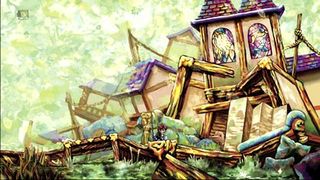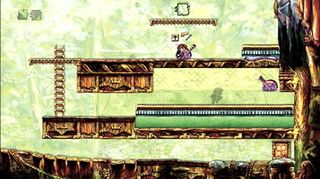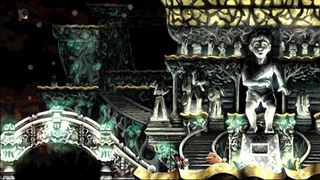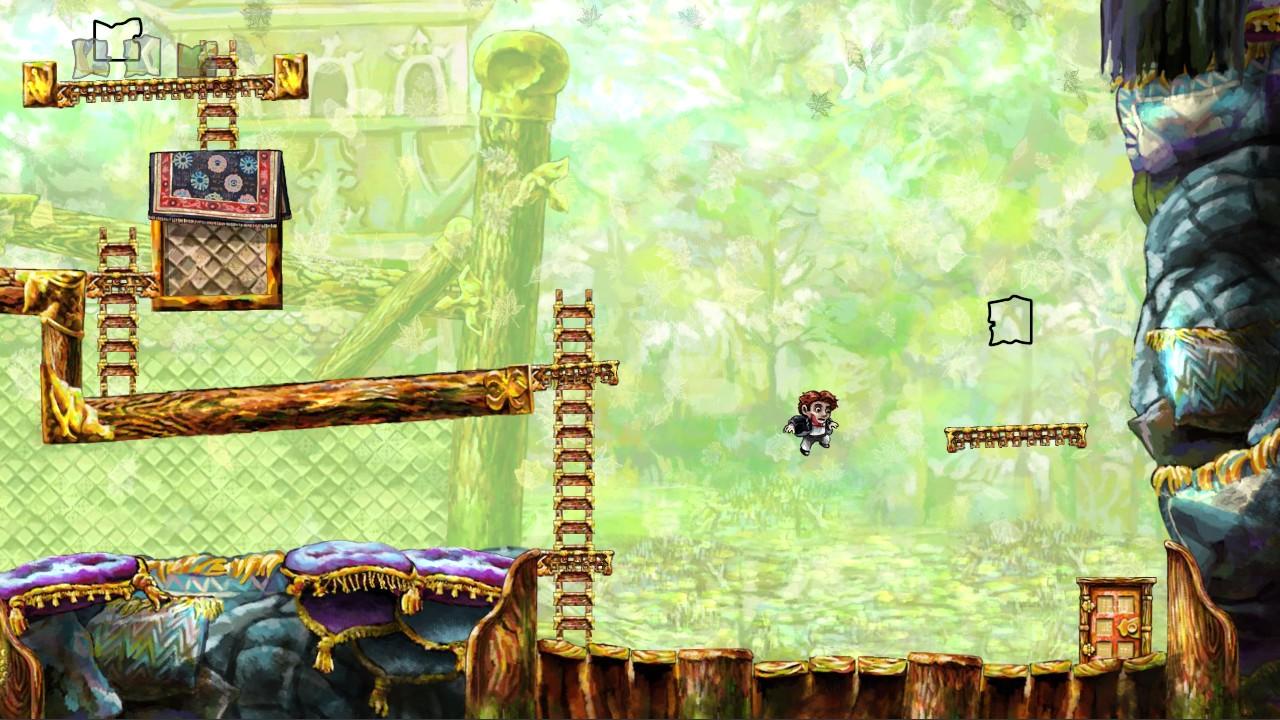Why you can trust 12DOVE
In the second world, some green-sparkling objects are unaffected by your rewind ability: they exist in a timeline that’s always moving forwards. Open a green-sparkling door and then rewind: it’ll stay open while the rest of the world reverts. So Braid becomes a game about using your rewind ability as a tool, pulling parts of the world back through time while others plow on, until the two align to your liking.

This, clearly, is impossible. Everything you do from this point on is impossible. And it looks impossible: some essential puzzle pieces dangle so absurdly in the middle of nowhere, so obviously unattainable, that you want to laugh. But they all are attainable, and not through some pro jumping trick or a pair of enchanted go-go boots you haven’t found yet. With two rather irritating exceptions, every one of them can actually be reached the first time you see them by thinking nimbly, laterally, inquisitively and most of all inventively.
In the third world time stands still – so long as you do. Walk right, and enemies start to move around normally. Stop, and they’re frozen in their tracks. The experience is eerily claustrophobic: that monster blocking your path will always be blocking your path. The only way past him is to think your way around.
Aside from the pieces you can’t immediately reach, there are two other bad puzzles in Braid: one that’s just fiddly even once you understand it, and one that has a tempting wrong solution that distracts you from the less logical real one. But these are four among more than sixty, and the rest are exemplary.

One puzzle in world three requires you to curve left during a jump, dragging time backwards to just before you pulled a lever near the start of the level. Without having to go back down to it, you’ve moved to a timeline in which it was never pulled, and so its effects are undone. It’s not much easier to grasp in-game than it is in text, but it’s an extraordinary feeling when you do.
World four is the most fun. Whenever you rewind time, a shadow version of Tim pops out of you and does exactly what you just undid. Pull a lever, then rewind time and wait by the door it opens: your shady doppelganger will run off and pull it for you.

Braid is a challenging game dressed up as a nigh-impossible one: you won’t always feel it, but you are smart enough to complete it. For the first five worlds you don’t need to collect any puzzle pieces to progress, so you can walk straight through even the toughest levels. We sulked past many a piece without the faintest hope we would ever figure out how to get it, only to come back later and grasp the bewildering concept immediately. Forget Brain Training’s tedious mental calisthenics: Braid is the brain’s gymnasium. It’s a game so intellectually engaging that it actually makes you a better, more versatile thinker.
More info
| Genre | Puzzle |
| Description | The artistic, post-modern, platforming/puzzler masterpiece comes to PSN, and it's just as great as it is on the 360. |
| Platform | "PS3","PC" |
| US censor rating | "Everyone 10+","Everyone 10+" |
| UK censor rating | "","" |
| Release date | 1 January 1970 (US), 1 January 1970 (UK) |
South of Midnight's gothic folk tale could be Xbox's ace up the sleeve for 2025

Nintendo Switch 2 could be more like the Wii U than you realize, and I'd say that's a good thing
9 years after Apple helped create our Bluetooth nightmare, Nintendo Switch 2 is sticking with a real headphone jack and I couldn't be happier
Most Popular

